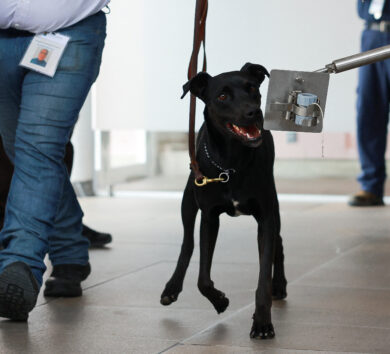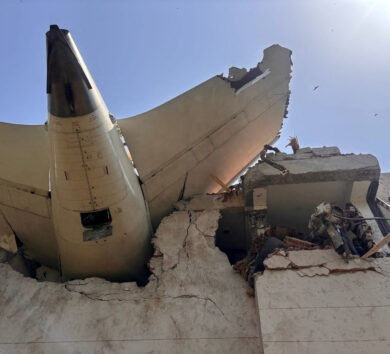

The country’s major utility companies have indicated their preparedness for severe weather conditions as activity in the tropical Atlantic intensifies.
Jamaica Public Service (JPS) Senior Manager George Kates said the company has invested heavily in its disaster-preparedness plans, which were continually developed using many years of lessons.
He said critical staff and third-party contractors are mobilised and emergency operation centres throughout the island are ready to be activated, when needed.
Additionally, he indicated that, in disasters, the JPS maintains contact with the security forces and the National Works Agency (NWA), “because we can recover as fast as they allow us because they have to be ahead of us to clear roads and make way for our team to move”.
Kates assured: “I can comfortably say that the JPS is in an advanced stage of readiness. We are ready to respond to any eventualities.”
He was addressing a special committee meeting of the National Disaster Risk Council at the Ministry of Local Government and Rural Development in Kingston last Friday (September 23).
During the meeting, which was convened by Desmond McKenzie, minister of local government and rural development, key private and public-sector entities outlined their state-of-readiness for Tropical Depression Nine, which strengthened into Tropical Storm Ian.
While the country was spared the worst effects of the system, it has since developed into a major hurricane and is expected to impact Cuba and Florida.

National Water Commission (NWC) Chairman Mark Barnett, in noting the entity’s readiness, said measures have been put in place to prepare for adverse weather conditions.
He noted that key townships across the island have been equipped with standby generators and that all NWC facilities in deep rural or urban areas will continue to operate “as long as it is safe to do so”.
He pointed out, however, that where the weather becomes severe, some facilities may experience disruptions or may be forced to shut down, especially those that rely heavily on reasonable quality water flow from rivers.
“We are making strides to ensure that we have the necessary infrastructure and necessary capacity in place for responsiveness, knowing very well that we are a small island state, and we are subject to these events,” Barnett said.
“All in all, we feel pretty comfortable in terms of our preparedness.”
As it relates to telecommunications, the island’s two main providers also told the committee meeting that they are ready to face a disaster if one strikes.

FLOW’s Senior Compliance Manager Keniesha Brown Plunkett outlined that the company has put 12 disaster plans in place, which allows for response to situations in a timely manner.
She said that, using lessons from the past, FLOW has actively trained its coordinators to respond to certain protocols and has identified key personnel in each parish, with the regional crisis management team also on standby if the local team requires assistance.
“We have tested our satellite phones that we have in stock and we’re also happy to say that we are supporting the national disaster programme.
“We have contributed to vests, we have sourced signs, and we have helped to ensure that shelter management programmes are up and running,” Brown Plunkett noted.
Some of the challenges experienced by the company that may affect its disaster response include the theft of infrastructure, which includes batteries and copper wires, and damage outside the plant network caused by motor-vehicle accidents.
To mitigate these, the company has activated monitoring and tracking on its devices, sensitised communities to monitor any irregularities, and has undertaken routine assessments.
There’s also an environmental management programme in place to manage hazardous waste, said Brown Plunkett.
Furthermore, the company’s corporate communications team actively monitors and sends out alerts to the public, in the event of a weather system.

Elon Parkinson, Digicel head of public relations, for his part, told the committee meeting that the company had activated its emergency management team to ensure full internal coordination.
“That includes our technical team that ensures that our sites are ready, that our facilities are topped up with fuel, that we have double-checked batteries to ensure complete reliance, that we have coordinated with our partners to make sure that they, too, are ready, that we establish lines of communication around the emergency messages,” Parkinson said.
He noted that the company had assured its business customers of the lines of communication and the strategies it will be undertaking, to maintain business continuity.
Additionally, the company had activated its social media pages to be used as a ‘community hub’ for information and to convey updates from the Government.
“As we do, we are supporting the overall government of Jamaica’s command and control communication efforts, and those efforts are going to be critical to getting Jamaica back on its feet again in the event of severe weather,” he said.
The Atlantic Hurricane season runs annually from June 1 to November 30. Mid-August to about mid-October is considered to be the peak of the season when, statistically, the tropical Atlantic becomes the most active, and experiences the most dangerous storms.
– Jamaica Information Service







Comments